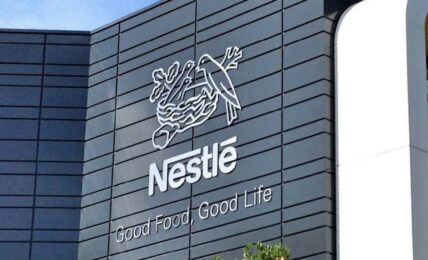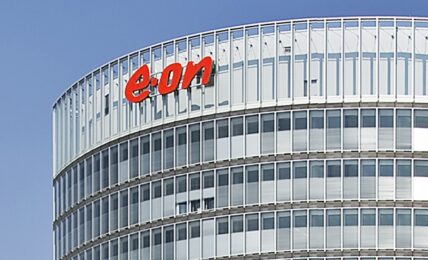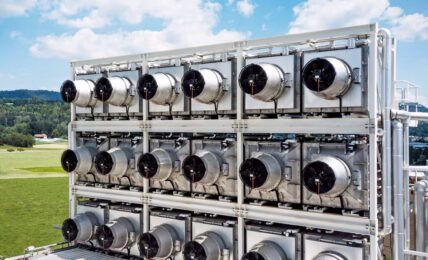European Commission President Ursula von der Leyen committed to introduce a new “Clean Industrial Deal” early in her second mandate, aimed at directing investment towards infrastructure and industry, particularly in energy intensive sectors, in order to support the EU’s industrial decarbonization, growth and competitiveness goals.
In a statement prior to her re-election on Thursday, von der Leyen said that the new clean industrial plan “will help create lead markets in everything from clean steel to clean tech and it will speed up planning, tendering, and permitting. We must be faster and simpler. Because Europe is decarbonising and industrialising at the same time.”
One of von der Leyen’s key actions in her first term was the launch of the European Green Deal in 2019, outlining a strategy to achieve transformational goals including making Europe the first climate-neutral continent in the world, reaching net zero GHG emissions by 2050 and reducing emissions by at least 55% by 2030, and decoupling growth from resource use. The launch of the Green Deal was followed by a wide range of legislation and regulations, spanning areas including nature restoration, sustainable transport, shipping and mobility, building decarbonization, carbon taxes, and dramatically scaling renewable energy capacity, among others.
One of the key elements under the Green Deal, introduced in 2023, was the Net-Zero industry Act (NZIA), a new law introducing a framework of measures aimed at scaling up Europe’s manufacturing capacity for technologies key to achieving the EU’s climate goals. According to the Commission, the NZIA was launched as Europe currently imports the technologies necessary to reach its climate and energy objectives, and as major government initiatives globally heat up to grab a stake in the rapidly emerging market to facilitate the net zero transition. The race kicked into high gear with the passage of the U.S.’ Inflation Reduction Act, which allocated nearly $270 billion through a series of tax credits, loans, grants and subsidies to areas including renewable energy and industrial decarbonization solutions.
In her statement on Thursday, von der Leyen pledged to put forward the new Clean Industrial Deal in the first 100 days of the new mandate, with the new initiative intended to “help create lead markets in everything from clean steel to clean tech and it will speed up planning, tendering, and permitting.
Highlighting the competitive benefits of the plan, Von der Leyen added:
“We must be faster and simpler. Because Europe is decarbonising and industrialising at the same time. Our companies need predictability, for their investments and innovation.”
While the EU succeeded in passing several pieces of key green deal legislation over the past few years, several required significant amendments and renegotiation to pass, due to the anticipated impact and cost of some of the new rules on some sectors, most notably agriculture. These factors have also affected more recent environmental proposals, such as the Commission’s recent recommendation to set a target to reduce net greenhouse gas emissions by 90% by 2040, with media reports noting that the Commission had initially planned to propose an ambition to achieve a 30% reduction in methane and nitrogen emissions from the agricultural sector, which was not included in its released recommendation.
In her statement, von der Leyen referred to efforts to bridge the gaps between the EU’s environmental goals and agricultural needs, including the launch of the Strategic Dialogue on the Future of Agriculture in Europe, bringing together farmers, environmental groups and other food chain experts, and adding that “I have promised to listen to them carefully and to learn from them… I will make sure that farmers receive a fair income. Von der Leyen also indicated incentives for farmers to contribute to the EU’s environmental goals, stating that “anyone who manages nature and biodiversity in a sustainable way and helps to balance the carbon budget must be properly rewarded.”
Von der Leyen reiterated a commitment to “stay the course” on the Green Deal and the 2030 and 2050 goals, and also pledged to “enshrine our 90% target for 2040 in our European Climate Law.”
Von Der Leyen said:
“For our young people, 2030, 2040, 2050 is around the corner. They know that we have to reconcile climate protection with a prosperous economy. And they would never forgive us if we do not rise to the challenge. So, this is not only a matter of competitiveness, but also a matter of intergenerational fairness. The young people deserve it.”



